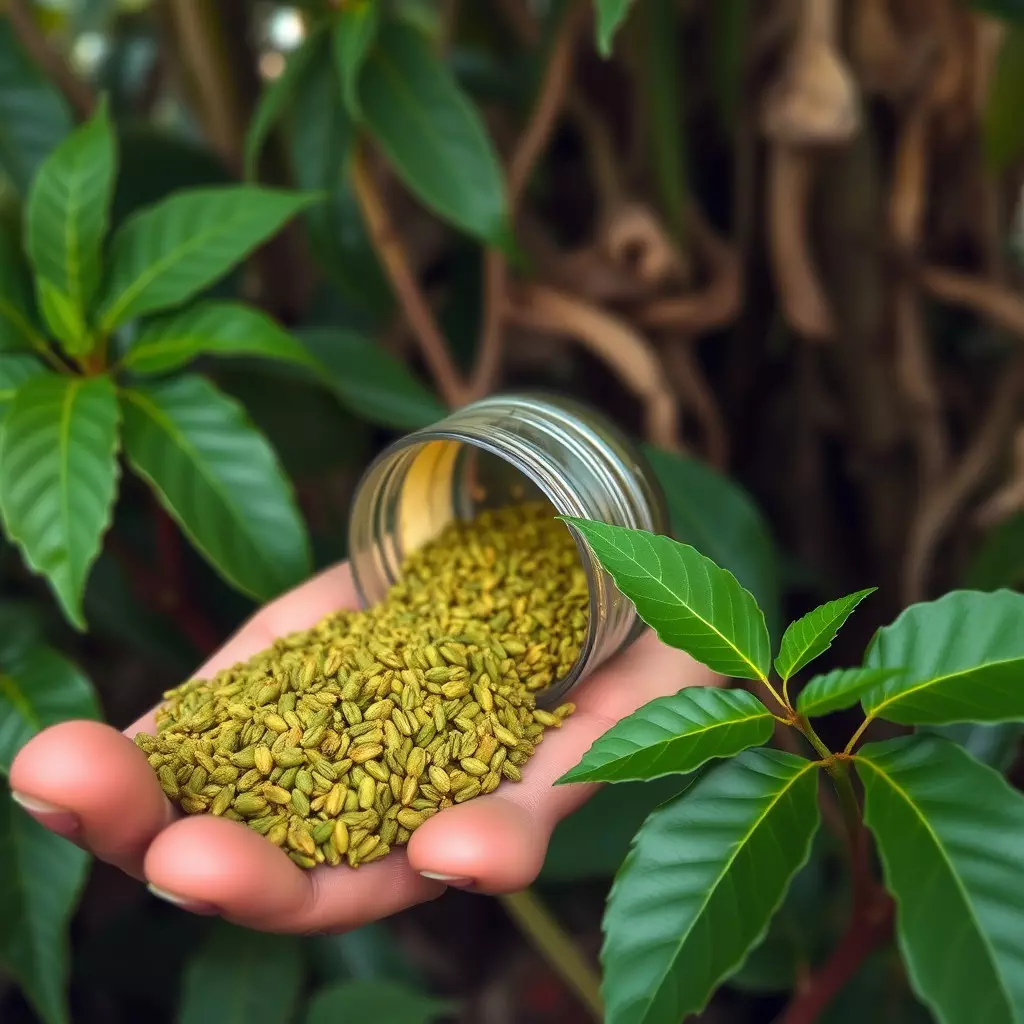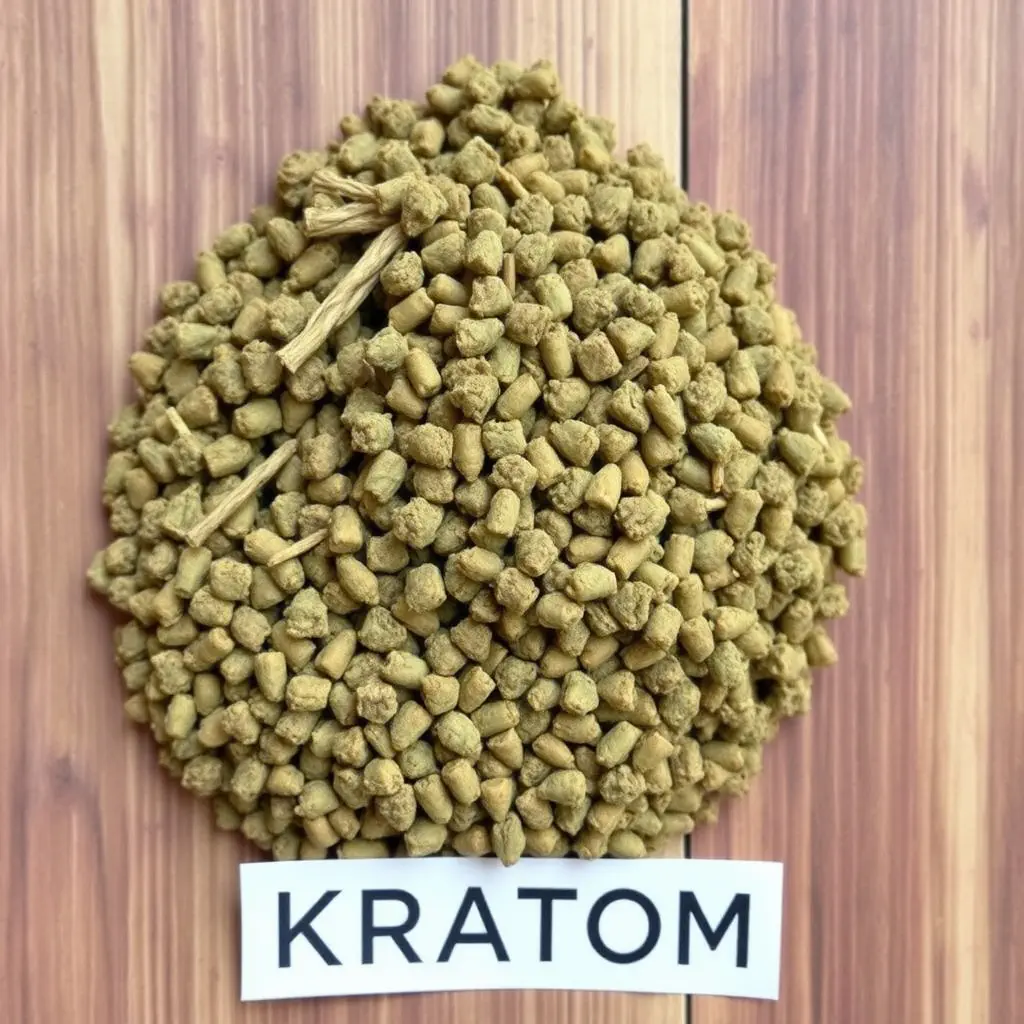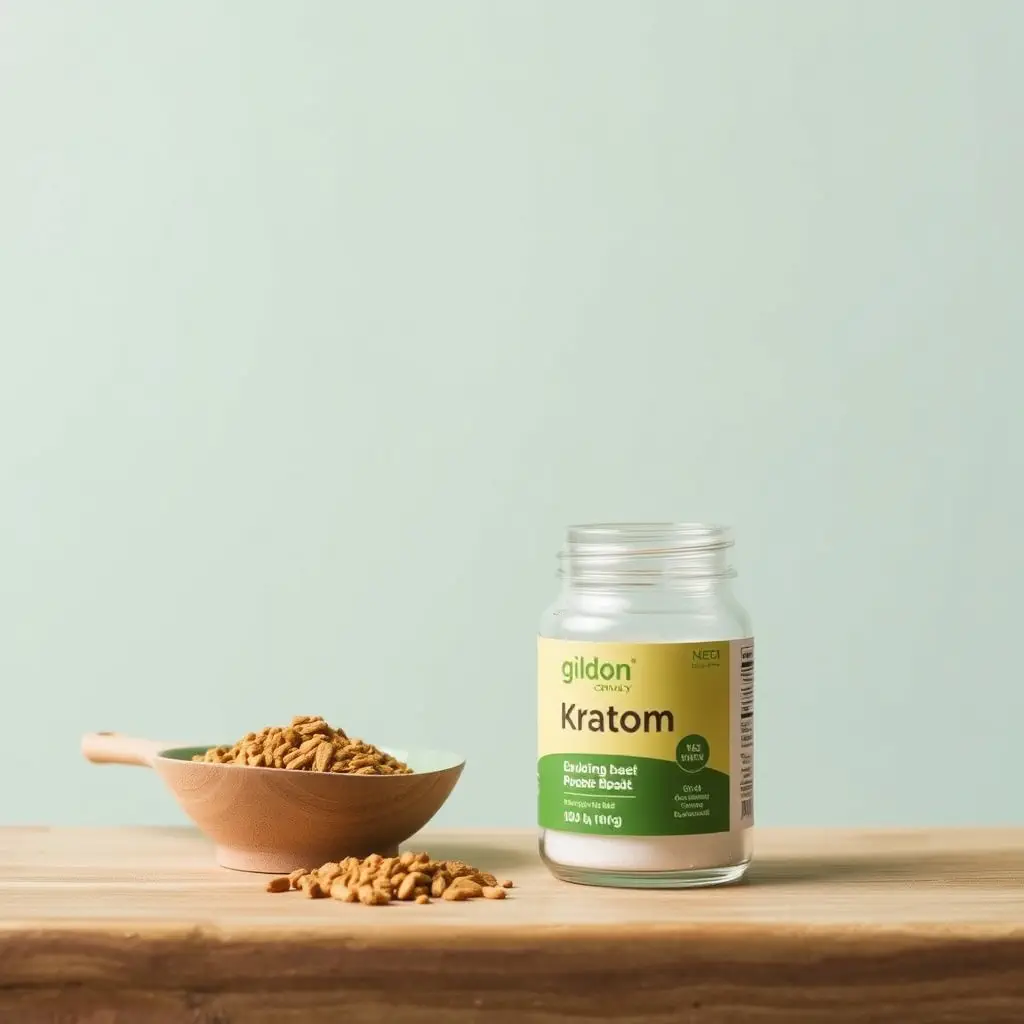Kratom, derived from a Southeast Asian tree, has garnered attention as a natural sleep aid, thanks to its alkaloids mitragynine and 7-hydroxymitragynine, which engage with opioid receptors to promote relaxation and enhance sleep quality. These compounds are believed to shorten sleep onset latency, reduce nighttime awakenings, and facilitate deep sleep essential for recovery and cognitive consolidation. While kratom shows promise as a sleep aid, it's crucial to approach its use with caution due to varying legal statuses and the need for dosage assessment and professional medical advice to avoid interactions with other medications. The plant is also known for its stimulant and pain-relieving properties, which have historically been utilized in traditional medicine. Notably, specific strains like Bali or Indo are recognized for their sedative effects that can improve sleep quality. However, individual responses may differ, highlighting the importance of starting with low doses and understanding one's biochemistry before incorporating kratom into a sleep routine. As the legal status of kratom fluctuates, consumers must stay informed and purchase from reputable sources that ensure product quality and safety.
Discover the transformative power of kratom as a natural sleep aid, offering profound benefits for deep sleep and enhancing overall sleep quality. This article delves into the scientific underpinnings of how kratom influences sleep architecture, leading to more restorative slumber. Additionally, it navigates the legal considerations necessary for safely incorporating kratom into your bedtime routine for improved sleep aid benefits. Join us as we explore the potential of this botanical remedy to revolutionize your nights and promote healthier sleeping patterns.
- Unlocking the Potential of Kratom as a Natural Sleep Aid: An Overview of Its Impact on Deep Sleep and Sleep Quality
- The Science Behind Kratom's Effects on Sleep Architecture: How It Promotes Restorative Slumber
- Navigating the Legal Landscape and Safe Usage of Kratom for Enhanced Sleep Benefits
Unlocking the Potential of Kratom as a Natural Sleep Aid: An Overview of Its Impact on Deep Sleep and Sleep Quality

Kratom, a tropical evergreen tree native to Southeast Asia, has garnered attention in natural health circles for its potential sleep aid benefits. Its leaves contain various alkaloids, with mitragynine and 7-hydroxymitragynine being the most prevalent. These compounds have been observed to interact with the body’s opioid receptors, which can promote relaxation and ease the transition into sleep. Users often report that kratom helps them achieve deeper levels of sleep, characterized by longer periods of uninterrupted restorative slumber. This deep sleep, also known as slow-wave or non-REM sleep, is crucial for the body’s repair processes and cognitive consolidation.
Research suggests that certain strains of kratom may enhance overall sleep quality by reducing the time it takes to fall asleep and decreasing the number of nocturnal awakenings. Additionally, the natural alkaloids found in kratom leaves can help maintain a stable sleep pattern, allowing individuals to experience more consistent, unbroken periods of rest throughout the night. While the full range of its effects is still being studied, anecdotal evidence and preliminary scientific findings indicate that kratom could serve as a viable alternative or adjunct to traditional over-the-counter sleep aids for those seeking to improve their sleep quality naturally. As with any supplement, it is essential to consider the proper dosage and potential interactions with medications, and to consult with a healthcare provider before incorporating kratom into one’s sleep regimen.
The Science Behind Kratom's Effects on Sleep Architecture: How It Promotes Restorative Slumber

Kratom, a plant from Southeast Asia with leaves containing psychotropic compounds, has been traditionally used for its stimulant and analgesic effects. However, its potential as a sleep aid has garnered attention in recent years due to its interaction with the body’s opioid receptors, which can modulate sleep architecture. The science behind kratom’s influence on sleep quality is rooted in its alkaloids, mitragynine and 7-hydroxymitragynine, which bind to mu, delta, and kappa opioid receptors in the brain, impacting sleep patterns.
Research suggests that kratom can promote deep sleep, a phase crucial for physical recovery and memory consolidation. During deep sleep, the body undergoes repair and regeneration processes, while the brain organizes new information and clears out toxins. Kratom is thought to facilitate this restorative slumber by enhancing the duration of slow-wave sleep (SWS), the stage associated with the most profound rest and renewal. Additionally, kratom may help in smoothing out sleep cycles, reducing interruptions during the night, and improving overall sleep quality. This can lead to increased alertness upon waking and a heightened sense of well-being throughout the day, making it a potentially beneficial sleep aid for those experiencing sleep disturbances. As with any sleep intervention, however, it is recommended to consult healthcare professionals before incorporating kratom into one’s sleep routine to ensure safety and appropriateness based on individual health considerations.
Navigating the Legal Landscape and Safe Usage of Kratom for Enhanced Sleep Benefits

Navigating the legal landscape surrounding kratom is a complex task due to varying regulations across different jurisdictions within the United States. It’s imperative for consumers to stay informed about their local laws, as the status of kratom can change rapidly. At the federal level, the Drug Enforcement Administration (DEA) has placed kratom in the Schedule I category of controlled substances, but this decision has faced legal challenges and has not been fully enforced. This uncertainty underscores the importance for users to prioritize sourcing kratom responsibly from reputable vendors who provide quality assurance and transparent labeling.
For those considering kratom as a sleep aid, it’s crucial to approach its use with caution and adherence to safe usage guidelines. Certain strains of kratom, such as Bali or Indo, are often favored for their sedative properties, which can promote deep sleep and improve overall sleep quality. However, the effects of kratom can vary greatly depending on individual biochemistry, dosage, and the specific alkaloid profile of the product. Users should start with low doses to assess personal sensitivity and adjust accordingly. It’s also advisable to consult with a healthcare provider before integrating kratom into a sleep regimen, especially if one has existing health conditions or is taking other medications. Ensuring the safety and legality of using kratom as a sleep aid involves staying informed on both regulatory changes and personal health considerations.
Kratom has emerged as a significant sleep aid, offering benefits that can transform one’s nightly rest. This article has shed light on how kratom influences deep sleep and overall sleep quality, providing readers with a scientific understanding of its impact on sleep architecture. Additionally, it has navigated the complex legal landscape surrounding kratom use to ensure safe consumption for improved sleep. For those seeking natural alternatives to traditional sleep aids, kratom holds promise in promoting more restorative slumber, which is essential for overall health and well-being. As research continues, understanding the benefits of kratom as a sleep aid becomes increasingly clear, making it a noteworthy option for individuals striving for better quality sleep.






